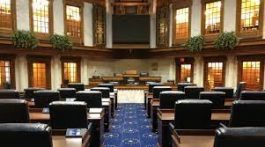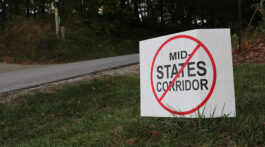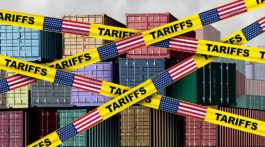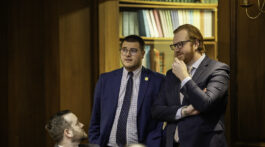by Matt Greller
Do you ever wonder why McDonald’s sells gazpacho in Spain, flan in Peru and what looks like awesome paneer wraps in India?
Have you given any thought to why Starbucks sells only Indianapolis mugs in Central Indiana, rather than Seattle, New York or Chicago mugs? You probably haven’t given these things much thought because they make perfect sense. Successful companies adapt their businesses to fit what they know will work in each environment.
To bring it closer to home, a larger city like Terre Haute is located off an Interstate and near the state line. They have a bustling restaurant and retail corridor that attracts a lot of out-of-towners and people passing through. Walkerton, is suburban town with lots of charm and fantastic parks. As Hoosier communities, these two have a lot in common. But they also have several geographical, population, and business differences. The leaders of these two communities likely look at many things through a different lens because they are different. The leaders in Terre Haute can’t make decisions as if Terre Haute were Walkerton any more than Walkerton leaders can make decisions as if they were Terre Haute. It wouldn’t work.
If this sounds elementary to you, you aren’t alone, but you probably aren’t a member of the General Assembly. Unfortunately, while we have seen some positive steps in the right direction in recent years, some of Indiana’s policy makers are still inclined to use a broad brush approach to problem solving. One menu, one mug for all cities and towns. Governing with this singular approach from the Capitol does not serve Hoosiers well and it certainly doesn’t allow our cities and towns to use their innovation, creativity and unique assets to create quality places that attract talent and growth.
What does it mean to create quality places? There are about as many answers to this as there are calories in a Big Mac. For Goshen, creating a safe environment for all citizens, a revitalized downtown and cool after-hours events like First Friday’s have propelled them to the front of the quality place race. In Jasper, building innovative partnerships like the new GigaCity initiative and a vibrant arts scene puts them in a unique position to attract talent, entrepreneurs and investors.
If you don’t follow the legislature you’re wondering how legislation really impacts a city or town’s ability to create a high quality of life. This answer takes many forms as well, but there are two more common ways municipalities get hamstrung by a statewide approach to governing our communities.
- Bills giving municipalities the authority to determine their own revenue structure are generally a non-starter in the legislature. So, if a border city like Terre Haute wanted to adopt a food and beverage tax to maximize their asset as a stopping point for travelers, they have to get permission from the General Assembly, who only grants this local decision making authority on a case by case basis.
- Lawmakers use broad brush legislation to solve a specific local dispute. If an apartment complex in one city thinks their inspection fees are too high, a moratorium on landlord registration programs is declared for communities all across the state, jeopardizing the safety and quality of life for everyone to solve an isolated problem. Annexation, which is the only way we can grow and develop Indiana’s economic centers, is in great danger of being altered to the point of extinction – all because fewer than 6% of annexations are remonstrated.
Like business, municipalities need flexibility to adapt and grow in a manner that best suits their environment. It’s a popular sentiment to say we want government to operate like a business. If that model is ever going to be successful, we need to give local leaders the flexibility to make it work. If we don’t we’ll end up with a cookie cutter state that doesn’t allow cities and towns to capitalize on their assets and continue developing quality, diverse and attractive communities.
We need to have a real discussion in Indiana about trusting local leaders to make the decisions they were elected to make. A failure to trust our local leaders to govern could result in a state full of flan, rather than the sugar cream pie, schnitzel, tenderloins, blueberries and popcorn that tell our Hoosier story from north to south.
Matt Greller is the head of the Indiana Association of Cities and Towns














